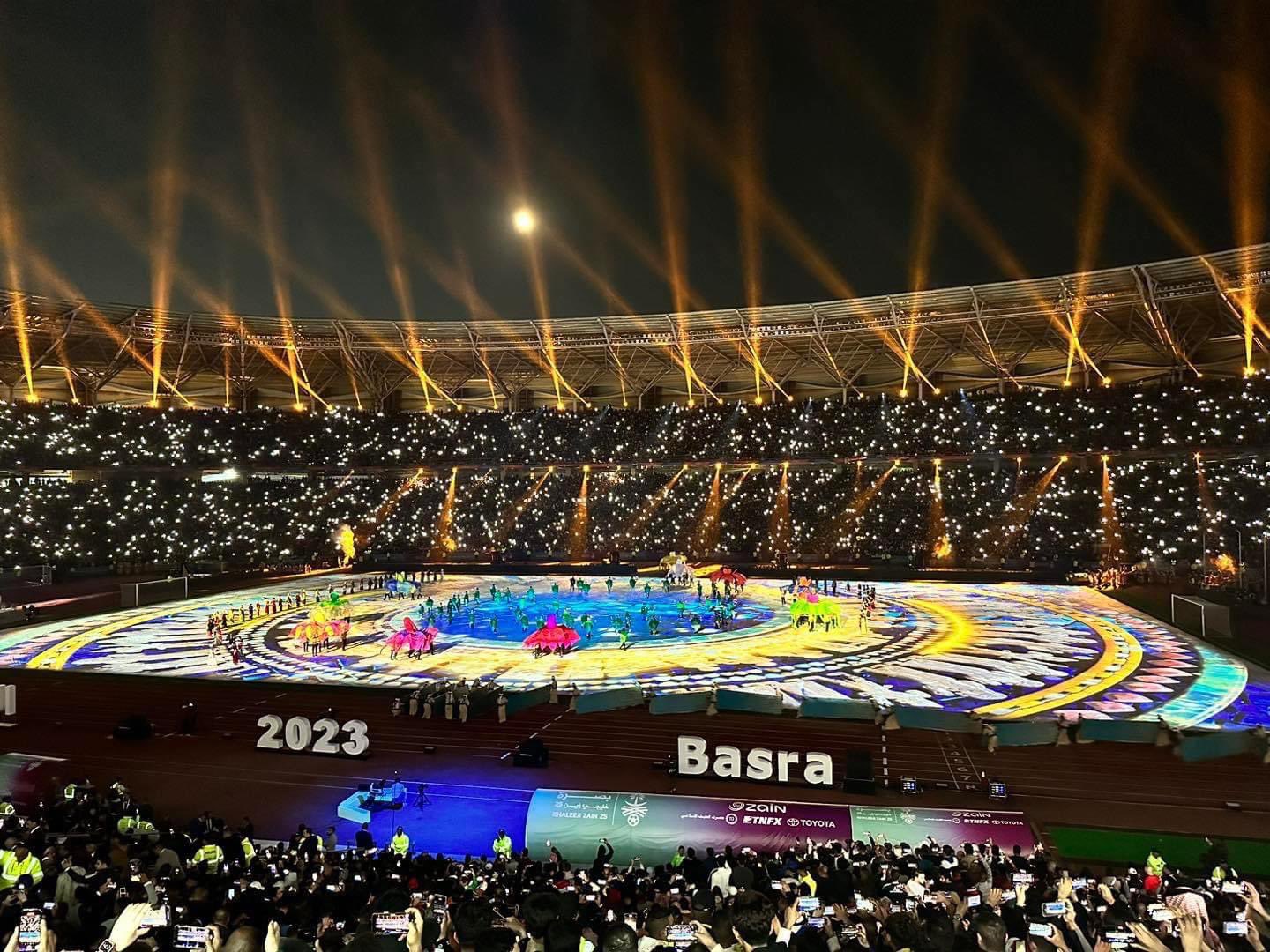44 years later, the Arabian Gulf Cup is finally back in Iraq, restoring football legacy to a country rived by bloodshed
This year’s edition of the Arabian Gulf Cup tournament is a tremendous turning point for Iraq, as the republic has faced decades of fluctuating violence.
Iraq has been torn by foreign invasions, armed violence, years of instability, and mass corruption that have triggered protests for change across the country in recent years.
With the Arabian Gulf Cup in full swing, Iraqis say it signals a much-needed return for the country.
Speaking to Doha News, British-Iraqi journalist Ahmed Twaij said: “It represents returning to the global stage free of the war and terror stereotypes that have gripped it for decades. It shows how sports transcends mere entertainment.
“Iraq is a very sporting nation, but the tournament will now allow the youth of Iraq to dream big, to dream global,” he said.
Iraq’s build-up to hosting the tournament, recognised as one of the most well-known sporting events in the region, has been a formidable challenge.
The Middle Eastern nation’s involvement in the Kuwait war levied a FIFA ban on international football events in Iraq, suppressing the country from the beautiful game.
Guided by the actions of a dictator, Iraqi footballers paid the price as their club matches were suspended, and they could not receive financial assistance from the football governing body.
While the team could participate in friendly competitions instead, those matches lacked the thrill that the Asian Games and other tournaments brought to the table.
‘The Dark Era’
Known as the ‘The Dark Era,’ FIFA’s leaders overlooked Iraqi players being tormented by Uday Hussein, the eldest son of Saddam.
Holding numerous positions, Uday Hussein was the country’s sports chairman, military officer and was also the head of the Iraqi Olympic Committee and Iraq Football Association.
As American fighter jets scrambled across the country, on the ground and more specifically on the pitch, members of the national team who performed poorly in games were often tortured by Hussein.
“Many of the footballers refused to even touch the ball, but then we realised that if no one accepted we would all be punished,” Iraqi footballer Abbas Rahim Zair told the Guardian.
Reflecting on his time as a footballer, Zair missed a penalty in a qualification match in Jordan, leading him to be blindfolded and taken to a prison camp for several weeks.
The footballer was held hostage against his will and was ordered to be stripped, shaved, and linked to electric cables for his missed shot.
Zair’s story is unfortunately not a unique one, as several members of the national team were found to be interrogated and abused during the siege of Iraq.
A breath of fresh air
As the senseless 2003 war piled on, Iraqi’s passion for the game barely hung on.
Still, it was quickly brought back to life in 2007 when Iraq won the AFC title for the first time, defeating three-time champion Saudi Arabia 1–0 in the final.
Absent of resources, Iraq kicked off its 2007 AFC Asian Cup campaign with very little compared to the rest of the competition.
The team entered the AFC Asian Cup, winning only two of their eight pre-tournament matches.
Death lingered in the country as countless of the team’s friends and family were killed amid the brutal American-led war.
Jorvan Vieira, team coach, revealed that the ongoing slayings affected the team severely.
“Several of the players had lost relatives in the conflict. Only six players turned up to our first training session,” the Brazilian coach said.
“Our physio was killed by a bomb in Baghdad two days before we flew out to Bangkok – he was on his way to the travel agent to buy his ticket. Then, upon arrival, two of our players were detained for eight hours by immigration officials,” Vieira added.
Moreover, the Iraq FA struggled to provide the necessary kits for the squad but somehow managed to make it to the opener against joint-hosts Thailand.
“I discovered we didn’t have equipment to train with or even kit. We had problems with the food, the hotel booking. It was a nightmare.”
Defeating Thailand and Vietnam in the quarter-finals 2-0, Iraq went against South Korea in a tight clash, ultimately climbing to the top 4-3 via penalties.
However, a suicide bomb killing 30 football fans in Iraq quickly dampened celebrations and posed a predicament for the team. Unsure whether to continue, Iraq’s national team decided to go on in honour of the dead, and flourished.
Simon Hill’s commentary of the match captivated the emotions of the taut country.
“The fairytale is complete. The team without a home base, the team without a coach until two months ago, the team left waiting in a hotel lobby for hours, the team who struggled to travel because of their passports… the team without hope has brought joy to its fractured nation. Football succeeds, perhaps you could say, where politics has failed. Iraq are champions of Asia – unbelievable!,” he said.
Overcoming large hurdles to compete in the 2007 AFC Asian Cup, the victorious headline of the Iraqi squad proved that the game of football could not be hostage to war.







